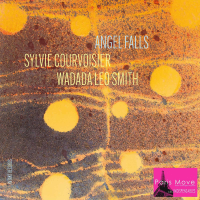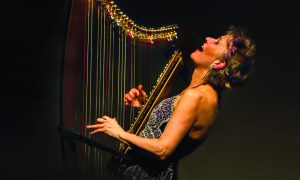By Steve Provizer
Tom, one of our commentors, speculates about Coltrane's contribution to the fracturing of the jazz audience and the concomitant loss of jazz audience in the early 1960's.
This fracturing was certainly underway before the early 60's; chiefly through Ornette and somewhat via Cecil Taylor and Dolphy, but for several reasons-and for better or worse- Coltrane was most responsible for this process.
I would lay a few shekels on the notion that this era gave birth to the jazz expression: “You gotta be able to go inside the house before you can go outside." If the adage did exist, I'd say it alluded to being able to play the blues-not to the bop/free dichotomy.
But whether or not the phrase was newly coined, it was in the air. And, of all those playing “free jazz" or “the New Thing," if you will, Coltrane was the only one who had obviously negotiated that transition (for the moment, let's suspend the large discussion that could be devoted to Dolphy and chord changes).
Another factor is that, while he was pressing on the “outside," Coltrane continued to make “inside" melodic music: the Johnny Hartman and Ellington records, recording “Someday My Prince Will Come" with Miles; even as late as 1964's “Crescent." It's reasonable to think that listeners who loved 'old' Trane would be willing to expend some energy trying to follow and find the musical value in his new directions. This may have led some to a kind of limbo; possibly the place where our friend Tom found himself.
The point I tried to make in Coltrane on Coltrane is that he basically just went about his (extraordinary) business. He talked about trying to be in tune with the Creator, but never proselytized; never tried to elevate his status as a “spiritual" person. Others, however, took him up for their cause; ridiculous in the case of people with political agendas (c.f. the Frank Kofsky interview); understandable in the case of people with a spiritual bent.
Secular music-jazz-always had a bit of a shaky spiritual relationship with the culture at large. Coltrane changed that. His highly credible musical history, his nearly universal acceptance by other musicians, the widespread perception of him as an exemplary character and his early death, made him the exemplar of this change.
In 1965, some thought you couldn't successfully pull the spiritual thread out of the jazz skein any more than you could the rhythm thread or the harmony thread. Others thought the most important thread was being given the primacy it deserves. This difference in perception continues.
Tom, one of our commentors, speculates about Coltrane's contribution to the fracturing of the jazz audience and the concomitant loss of jazz audience in the early 1960's.
This fracturing was certainly underway before the early 60's; chiefly through Ornette and somewhat via Cecil Taylor and Dolphy, but for several reasons-and for better or worse- Coltrane was most responsible for this process.
I would lay a few shekels on the notion that this era gave birth to the jazz expression: “You gotta be able to go inside the house before you can go outside." If the adage did exist, I'd say it alluded to being able to play the blues-not to the bop/free dichotomy.
But whether or not the phrase was newly coined, it was in the air. And, of all those playing “free jazz" or “the New Thing," if you will, Coltrane was the only one who had obviously negotiated that transition (for the moment, let's suspend the large discussion that could be devoted to Dolphy and chord changes).
Another factor is that, while he was pressing on the “outside," Coltrane continued to make “inside" melodic music: the Johnny Hartman and Ellington records, recording “Someday My Prince Will Come" with Miles; even as late as 1964's “Crescent." It's reasonable to think that listeners who loved 'old' Trane would be willing to expend some energy trying to follow and find the musical value in his new directions. This may have led some to a kind of limbo; possibly the place where our friend Tom found himself.
The point I tried to make in Coltrane on Coltrane is that he basically just went about his (extraordinary) business. He talked about trying to be in tune with the Creator, but never proselytized; never tried to elevate his status as a “spiritual" person. Others, however, took him up for their cause; ridiculous in the case of people with political agendas (c.f. the Frank Kofsky interview); understandable in the case of people with a spiritual bent.
Secular music-jazz-always had a bit of a shaky spiritual relationship with the culture at large. Coltrane changed that. His highly credible musical history, his nearly universal acceptance by other musicians, the widespread perception of him as an exemplary character and his early death, made him the exemplar of this change.
In 1965, some thought you couldn't successfully pull the spiritual thread out of the jazz skein any more than you could the rhythm thread or the harmony thread. Others thought the most important thread was being given the primacy it deserves. This difference in perception continues.























